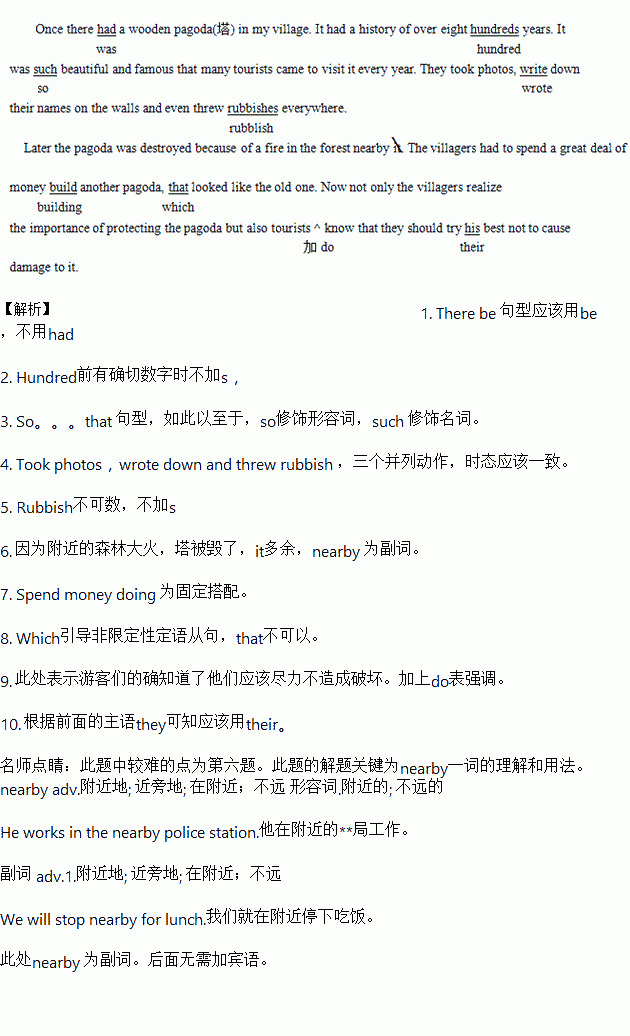题目内容
假定英语课上老师要求同桌之间交换修改作文,请你修改你同桌写的以下短文。短文中共有10处错误,每句中最多有两处。错误涉及一个单词的增加、删除或修改。
增加:在缺词处加一个漏字符号(∧),并在此符号下面写出该加的词。
删除:把多余的词用斜线(\)划掉。
修改:在错的词下划一横线,并在该词下面写出修改后的词。
注意:1.每处错误及其修改均仅限一词;
2.只允许修改10处,多者(从第11处起)不计分。
Once there had a wooden pagoda(塔)in my village. It had a history of over eight hundreds years. It was such beautiful and famous that many tourists came to visit it every year. They took photos, write down their names on the walls and even threw rubbishes everywhere.
Later the pagoda was destroyed because of a fire in the forest nearby it. The villagers had to spend a great deal of money build another pagoda, that looked like the old one. Now not only the villagers realize the importance of protecting the pagoda but also tourists know that they should try his best not to cause damage to it.


 ill be on display in the supermarket
ill be on display in the supermarket


